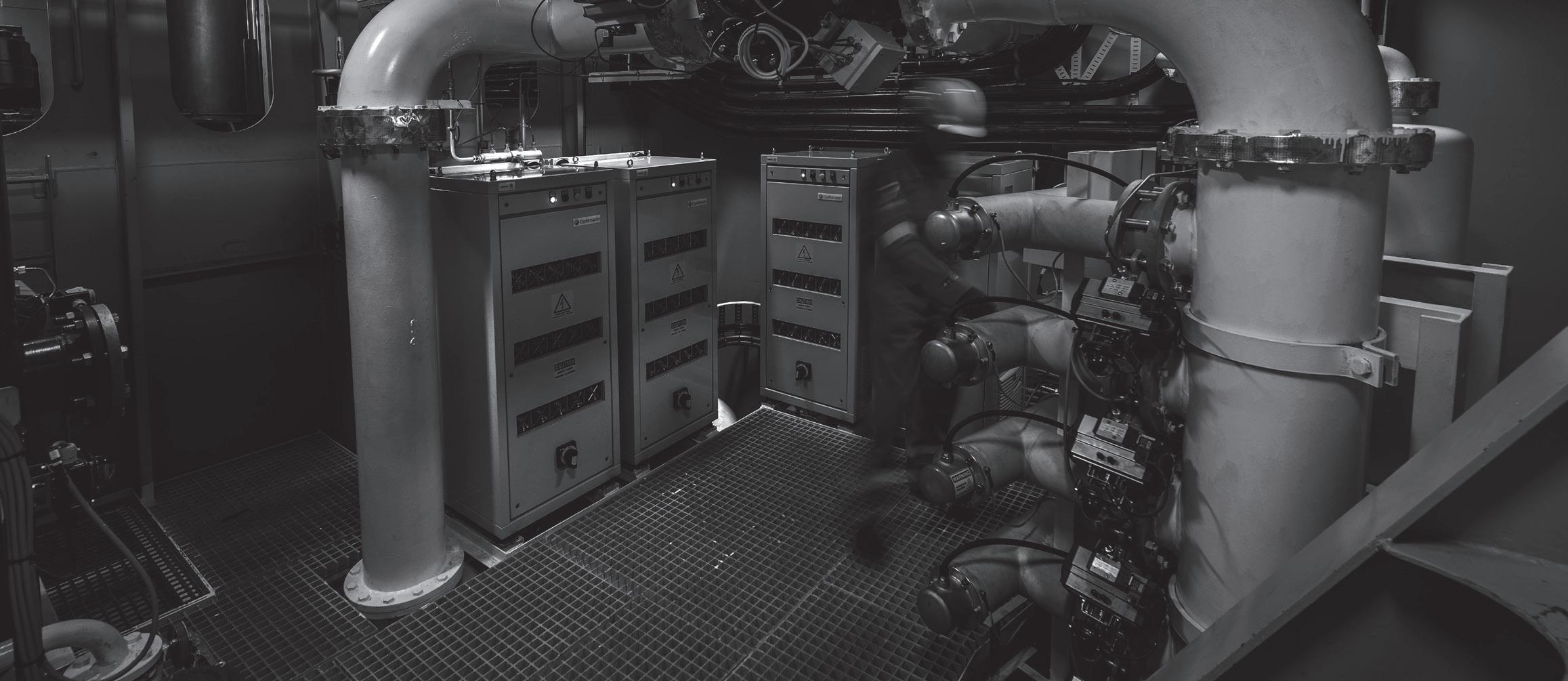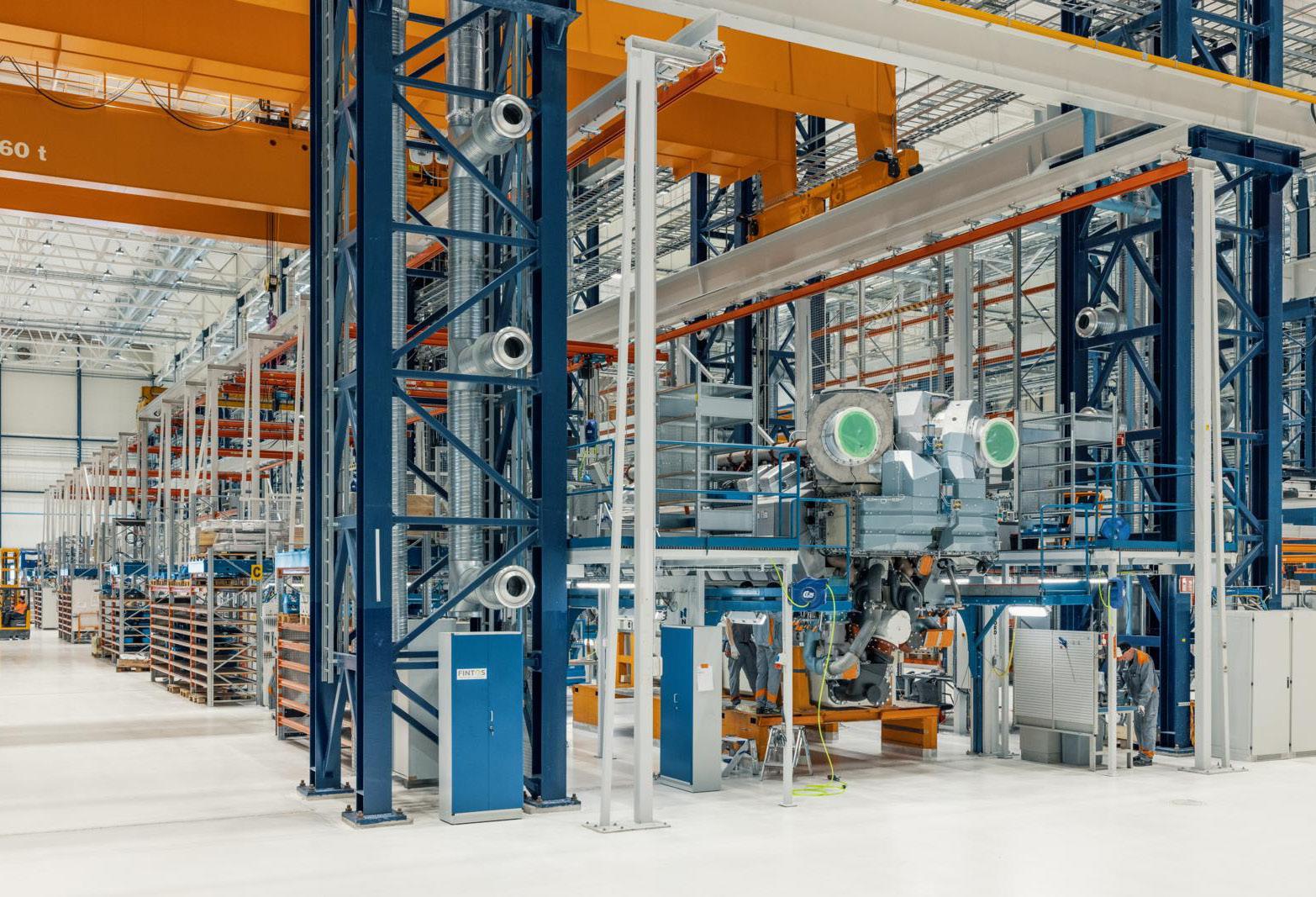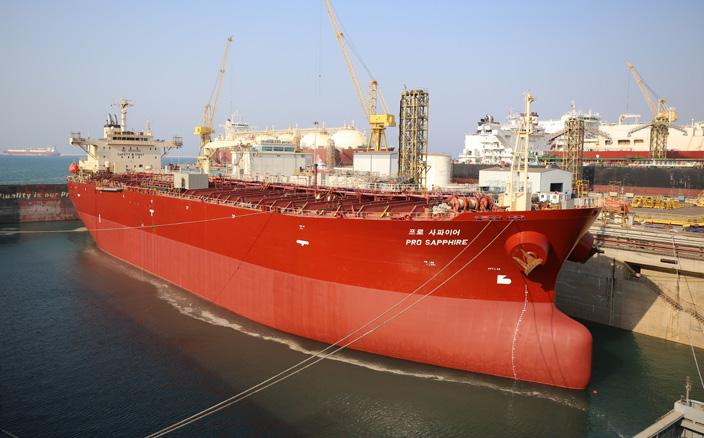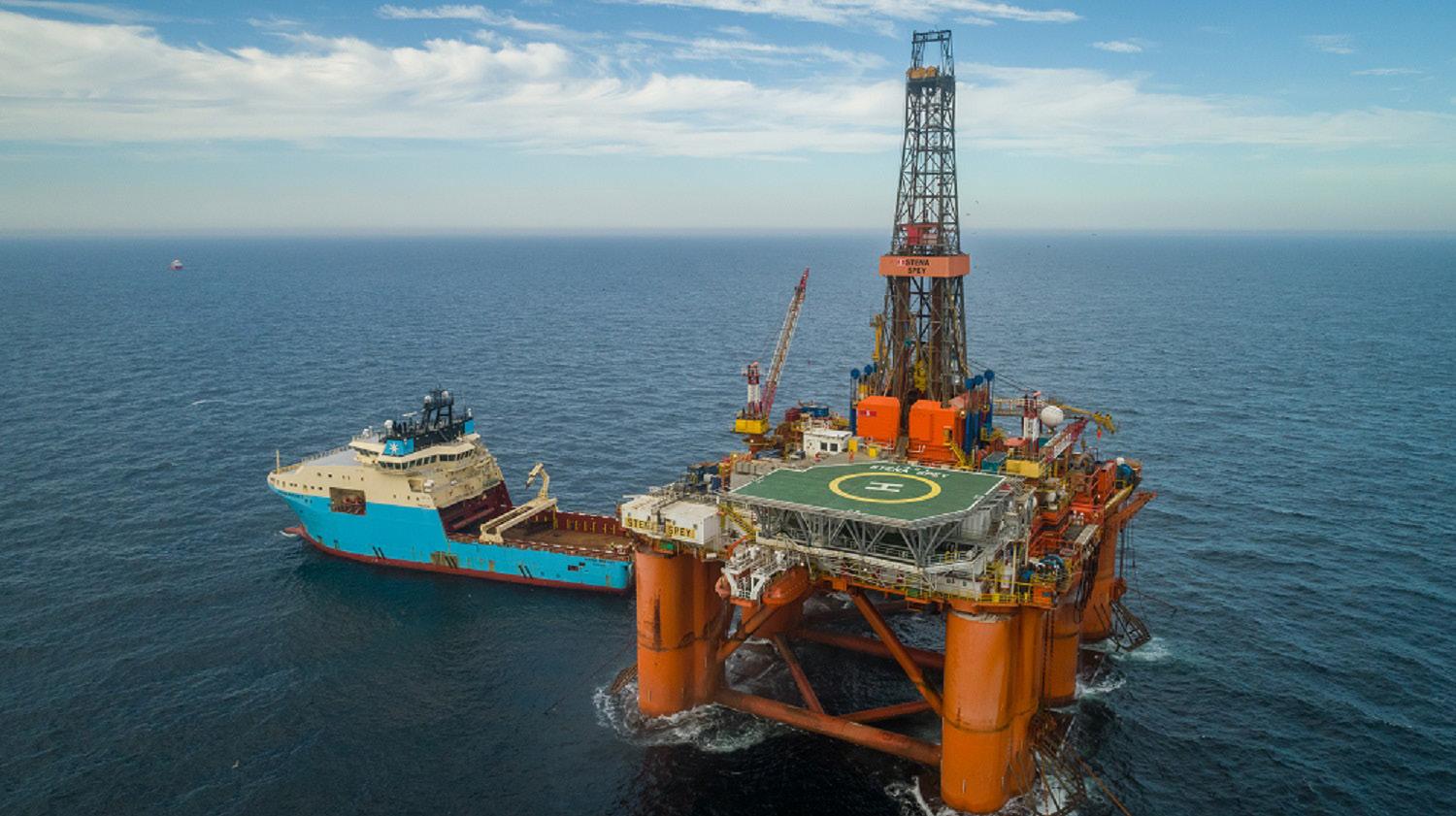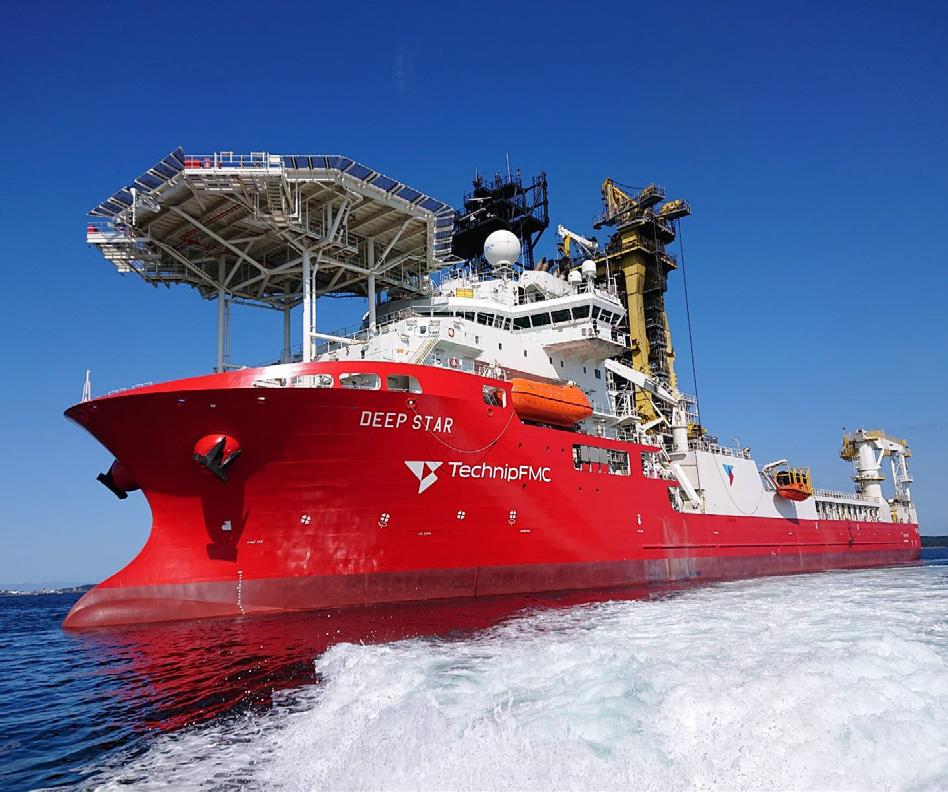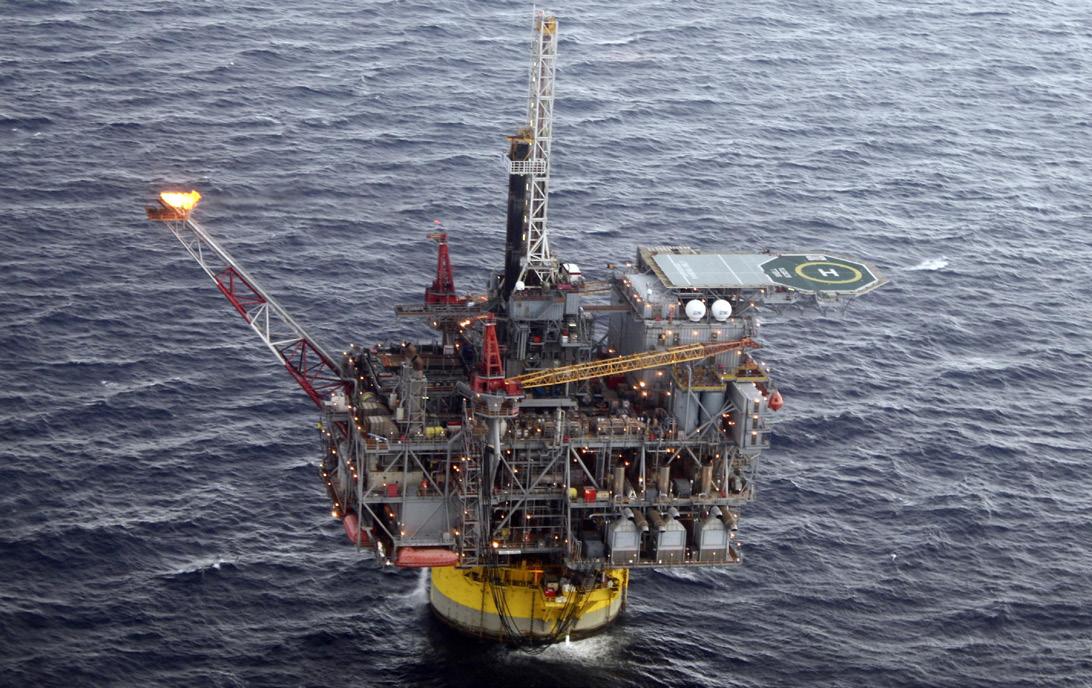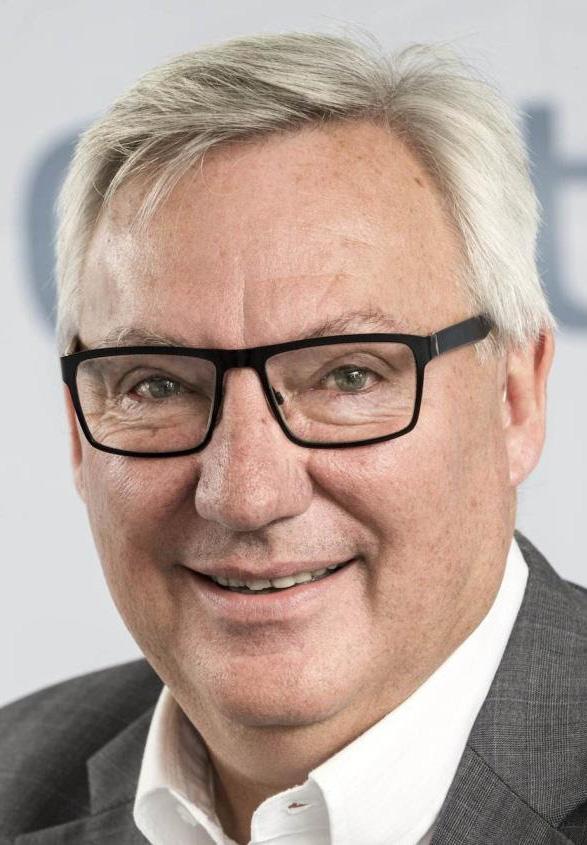
9 minute read
Ballast Water Management
Optimarin’s work to deliver key components
Optimarin’s, headquartered in Norway, ability to leverage a flexible delivery model for key components for its BWM systems has been vital to overcome supply chain challenges to keep rolling out its in-demand product to clients amid rising orders. Disruption to the global supply chain has mainly been caused by the COVID-19 pandemic, leading to shortages of items like computer chips due to lockdowns, and the Ukraine crisis has created further bottlenecks that have hit shipping trade.
Advertisement
However, Optimarin has a dual-supplier strategy in place that has enabled it to maintain efficient system deliveries even though supply capacity has been strained as demand has rebounded after the lifting of pandemic restrictions, explains executive vice president supply chain Karl Morten Skjæveland.
“Optimarin operates a lean and highly integrated supply chain based on strong and close co-operation with a network of trusted and reliable suppliers. The company also has in-house control of the critical elements of the value chain, which makes the business scalable and flexible.”
This has proven timely as Optimarin has seen increasing orders for its market-leading BWM system, due to the urgent need to retrofit thousands of vessels to achieve compliance with IMO ballast water regulations. The Norwegian BWM specialist has continued to be able to source high-quality components that underpin its well-engineered and robust system.
Skjæveland says the company has a very efficient ordering process whereby parts orders are automatically placed with suppliers and shipped to a central warehouse in Luxembourg before onward shipment for installation and commissioning. The modular nature of the system means it can be transported in a compact form to minimise the environmental footprint of logistics and this also facilitates ease of installation on-board a vessel, he says.
While the system is based on advanced technology, it remains easy to understand and operate using an intuitive touch-screen control panel, with a focus on simplicity, functionality and flexibility. The so-called Optimarin Ballast System (OBS) has backflushing filters and UV treatment, with separate UV chambers installed on two manifolds and flexibility to add chambers - each with 167 m3/hr capacity - for increased treatment capacity.
The modular construction assures redundancy as individual chambers are shut down automatically in the event of a lamp failure in one of them so that the system can remain in operation while the lamp is replaced. There are also unique energy-saving features such as the flexibility to run the system at reduced capacity if required - for example, when using variable capacities for ballasting and deballasting - and a one-click function for stripping when the optimal number of UV lamps are in use.
Its functionality has been further enhanced with the recent addition of the OptiLink BWM system - the first in the industry - that is a cloud-based solution for real-time monitoring of the BWM system with ship-to-shore data connectivity. This digital tool makes ballast water transfer more efficient for faster port turnarounds to reduce downtime and fuel consumption, while providing data transparency to aid regulatory compliance. It also facilitates condition monitoring of the system for proactive maintenance and interactive remote support.
OptiLink is the latest innovation from Optimarin, which originally pioneered the first BWM system for shipping that was installed on the cruise ship Regal Princess in 2000, with the system being continually developed in collaboration with suppliers as part of a continuous product improvement programme.
Looking to the future, Tore Andersen, Optimarin’s Executive Vice President Sales & Marketing said, “We have reached the stage whereby we are now looking at what we will do when the market will tail off. Up to 2024 is believed to be the peak years for BWM system installations – we have doubled the total number of installations this year compared with last year. A lot of ‘experts’ say there is 30,000 ships to be fitted with such systems – but do not believe it will be that many.
“Optimarin will become an after-sales service company – spare parts and service and we will continue with the newbuilding market – we have never sold so many systems for newbuildings as we have during this year. We have been particularly successful in picking up orders for ‘series’ newbuildings, such as Evergreen.
“Meanwhile we are almost ready to start trials whereby we use our system in a different market. We have developed a ROV for hull cleaning and then we suck everything up into our system and then all the particles are separated and the water can then be pumped overboard. That will be the new industry for Oprimarin, especially in Norway where there is an extensive fish farming industry, which would suffer from such particles being discharged into the open sea. We have a co-operation with a Norwegian diving company. The system will allow the water from the ROV to be cleaned twice and then it will be fit to be pumped overboard. We are particularly looking at ships which have been sailing for two/three years”

Optimarin is maintaining BWM system deliveries in the face of supply chain challenges that have disrupted shipping trade Tor Andersen
Nigerian market for DESMI
Denmark’s DESMI has sold solutions to Nigeria for more than 20 years – and it is now time
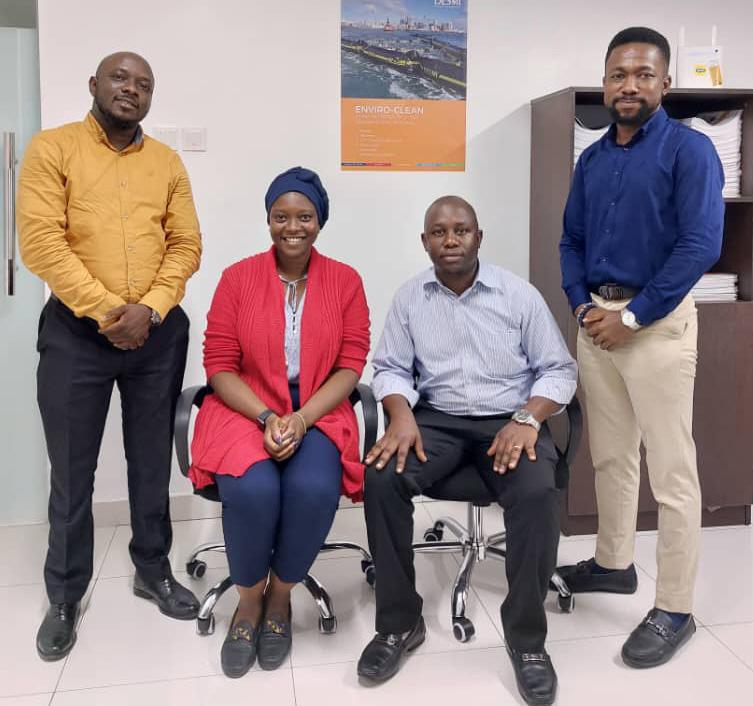
Team DESMI Nigeria
to take further steps into the Nigerian market being even closer to its customers and partners. Speaking to Leslie P. Andrews, Managing Director of DESMI Africa, one can feel the enthusiasm and good mood. This is another solid step for the DESMI Group into the African market, which has been served and supplied with solutions from DESMI for decades.
“We are happy. The Nigerian market is a huge market to service, and with the increasing demand for our solutions both within oil spill and pumps, it makes perfect sense to have our presence, team, and knowledge, locally,” says Mr. Andrews.
DESMI Nigeria will be located in Lagos, and the young start-up team consists of Office Manager Najeeba Abdulmajeed Owolabi and the sales team Philbertus Mujuni, Collins Ugochukwu Afoaku and Elijah Sobalaje Ogunniran. The sales team has used the last year to support our local customers preparing for the strategic move into one of Africa’s largest economies.
“Being here locally, with our own office, is a milestone, and our goals have been set. We have high expectations! We want to be one of the most preferred brands with our flow technology solutions within oil spill response, marine debris trash, engine room pumps for marine and utilities, and much more. An exciting future is ahead of us in Nigeria,” concludes Mr. Andrews.
Langh Tech receives IMO’s MEPC approval
Finland’s Langh Tech Oy Ab has received IMO’s MEPC type approval certificate for its LanghBW BWM system, the type-approval project was carried out in co-operation with DNV. Langh Tech’s main goal is to provide vessels and shipowners with a reliable and highly efficient BWMS, which is easy and affordable to operate and even easier to maintain. The suitability to small and complex installation spaces has been one driving factor during the product development.
LanghBW Systems is a BWM system which uses fine filtration and UV-C treatment. The unique feature of LanghBW is its ability to utilise one-way treatment in sea waters and therefore conserve significant amounts of time and energy during deballasting operations. This is achieved with a highly efficient UV-reactor design and sufficient power reserve which also allows operation in extremely turbid and challenging waters. The other unique feature is the design of the reactor unit, which allows the user to manually clean all the internal parts of the reactor in a few minutes, without any tools required.
“We started the product development project in autumn 2020 and now only 18 months later we have IMO approval in our hands,” says Langh Tech Product Manager Kim Tervonen. “We are proud to be one of the few makers in the world who can provide a BWM system with the possibility to treat the water only once,” Tervonen continued. “The conventional way in UV based systems is to use the BWM system unit both at intake and at discharge, but we have IMO approval to treat the sea water only at intake, this will save a lot of energy and make deballasting very fast if needed,” Tervonen clarifies.
“In addition to IMO’s MEPC type approval also the USCG approval for the system is expected to be received during autumn 2022, says Joakim Keihäs, Langh Tech design engineer, who together with Product Manager Mr. Tervonen had a central role in the R&D project. So far 18 vessels are committed to be fitted with LanghBW system during 2022 – early 2023, with more vessels to come. At the moment, six vessels with LanghBW are in operation or in installation. The first vessel installed system has been in continuous operation since June 2021.
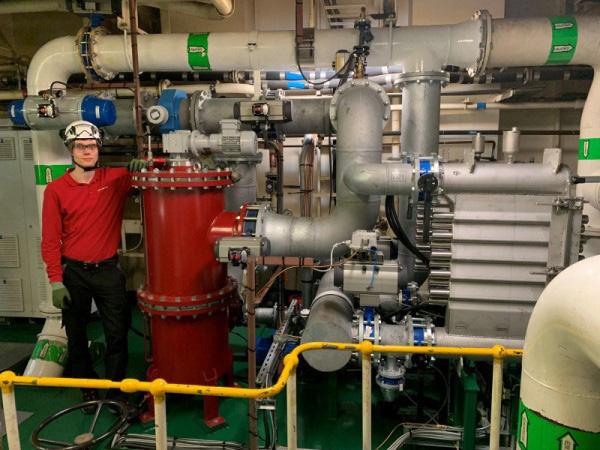
The Langh Tech BWM system
ERMA FIRST partners with N-KOM
Qatar’s Nakilat-Keppel Offshore & Marine (N-KOM), a joint venture between Nakilat, and Singapore’s Keppel Offshore & Marine, will provide after-sales technical support to vessels equipped with ERMA FIRST BWM systems calling at ports and at N-KOM.
ERMA FIRST has signed an agreement with N-KOM to provide support by utilising the skills of N-KOM marine engineers based in Qatar for on-board equipment services. Our customers will now have access to any troubleshooting, installation, maintenance, calibration and testing related issues in Qatar.
Greece’s ERMA FIRST is a leading manufacturer of BWM equipment and has installed over 2,500 systems on more than 2,000 vessels world-wide. Its global aftersales network already encompasses locations in the USA, Canada, China, Japan, South Korea, Singapore, Panama, UAE, India, Turkey, Greece, Cyprus, Romania, Poland, Latvia and Ukraine. The addition of N-KOM’s Qatar team to ERMA FIRST’s network further widens its reach.
“Our ability to offer customers the most complete global after-sales network in the market is a great source of pride for everyone within the organisation,” said ERMA FIRST Managing Director Konstantinos Stampedakis. “This collaboration with N-KOM further strengthens our evergrowing capability as we aim to assist clients around the world.”
N-KOM’s repair yard in Ras Laffan offers a comprehensive range of repair, conversion, maintenance and fabrication services for conventional ships, and offshore and onshore structures. ERMA FIRST will have a workshop located within the yard.
N-KOM’s Chief Executive Officer, Damir Glavan, said, “N-KOM is delighted to partner with ERMA FIRST. We have a highly trained group of engineers in Qatar, who are ready
to assist all ERMA FIRST customers. N-KOM is known in the industry for our responsive, thorough and diligent technical support.”
New Japanese office for Techcross
South Korea’s Techcross announced on July 1st that it would move its Japanese office located in Fukuyama to Osaka. The Techcross BWM system has already been installed on more than 1,000 Japanese ships, occupying the largest market share in Japan. Techcross explained that its office has moved to the Osaka area, where transportation is convenient, for quick and thorough customer response, as it is expected that there will be more ship management requests and after-sales service issues from ships that have installed the system.
In addition, long-term resident engineers were dispatched from the Korean head office and based on this - Techcross is focusing on training local after-sales service partners as well as nurturing new engineers, aiming for perfect localisation of after-sales services.
Since the Techcross Japan Office is located near Osaka Station, where one can quickly move anywhere in Japan, it is expected that it will further contribute to customer satisfaction.
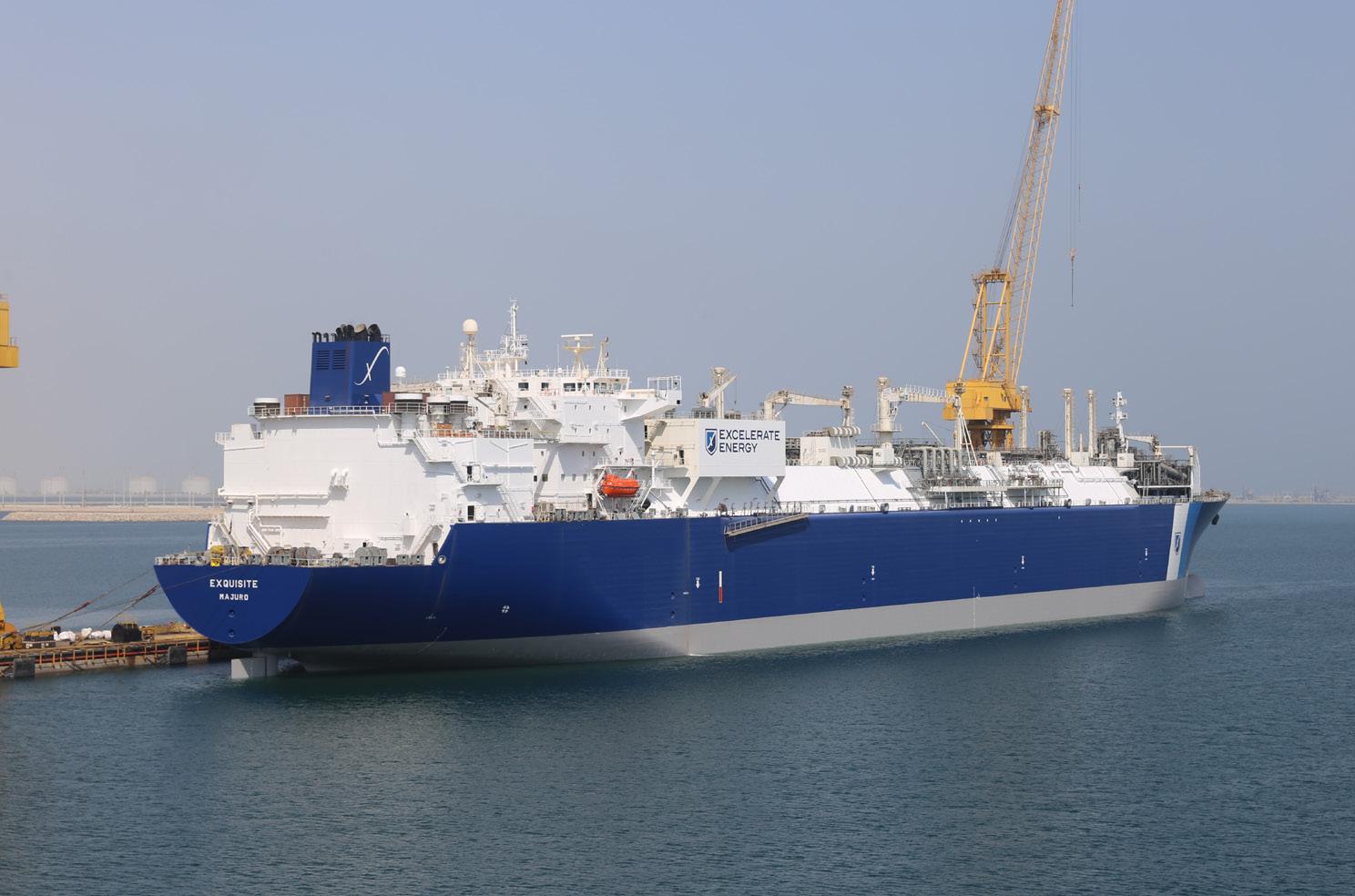
Ships in N-KOM
